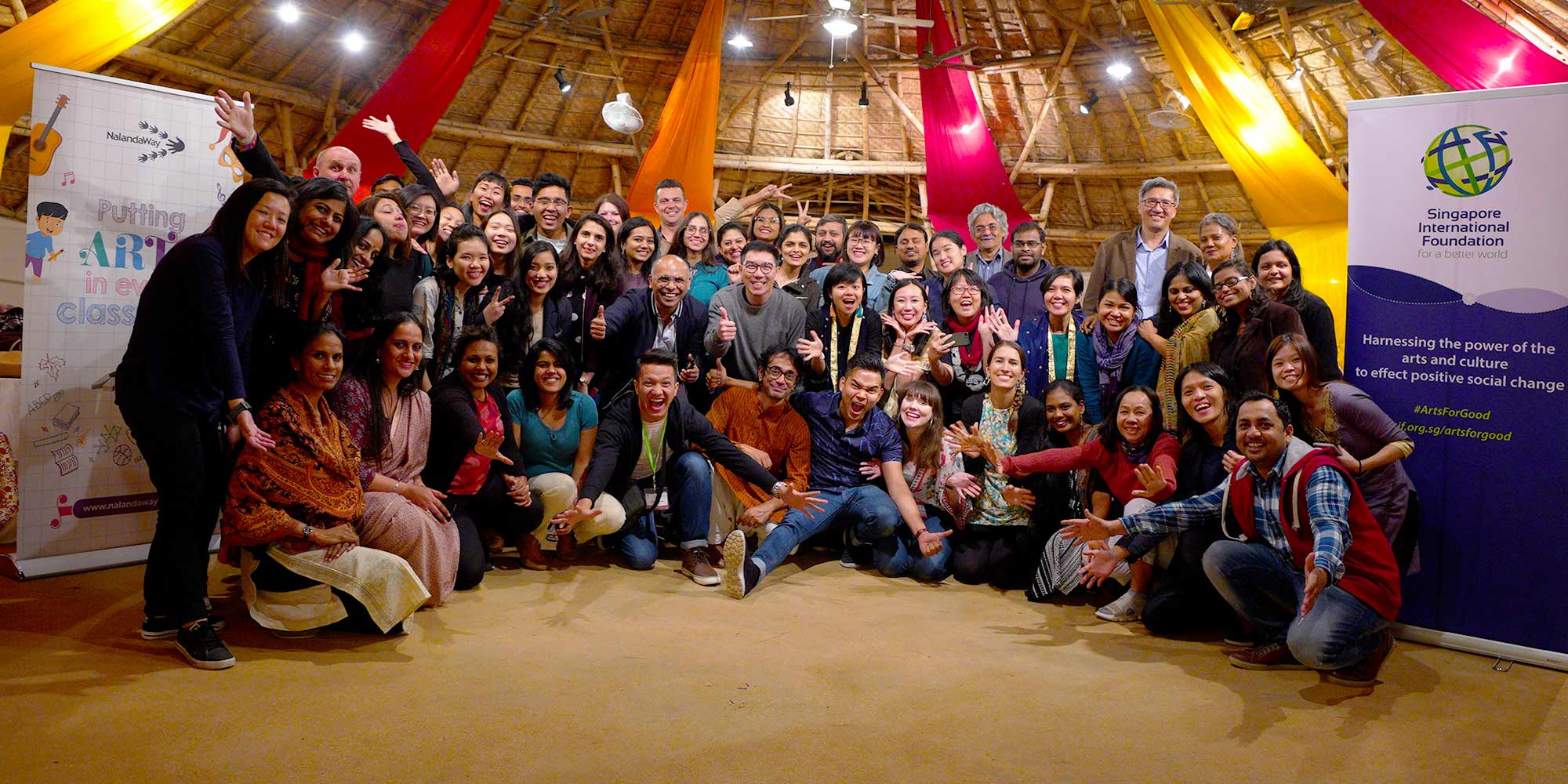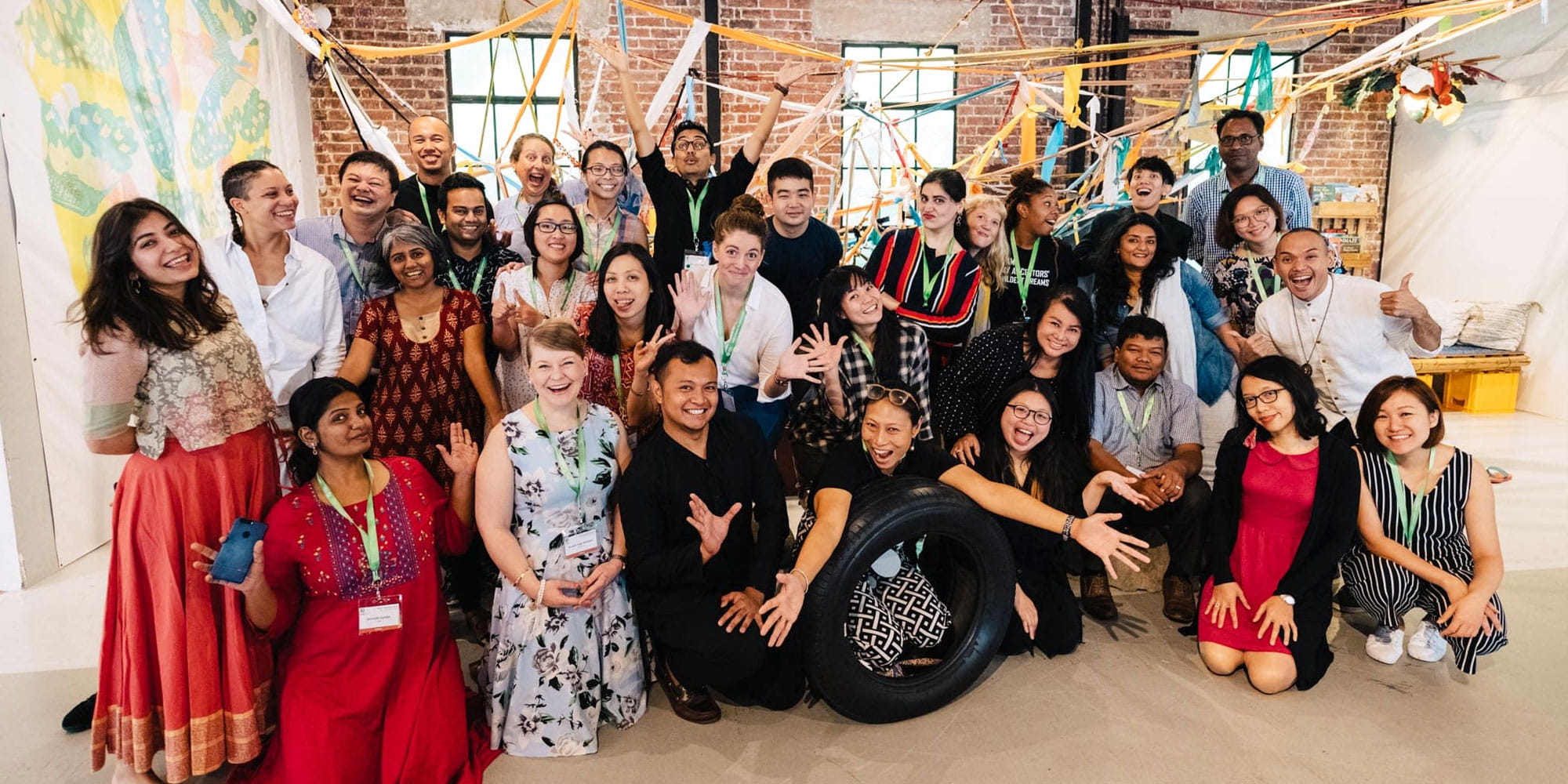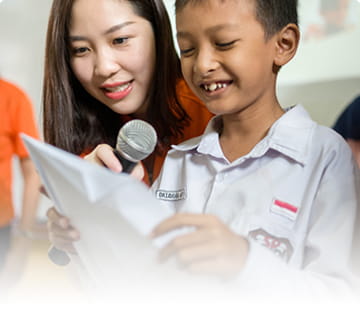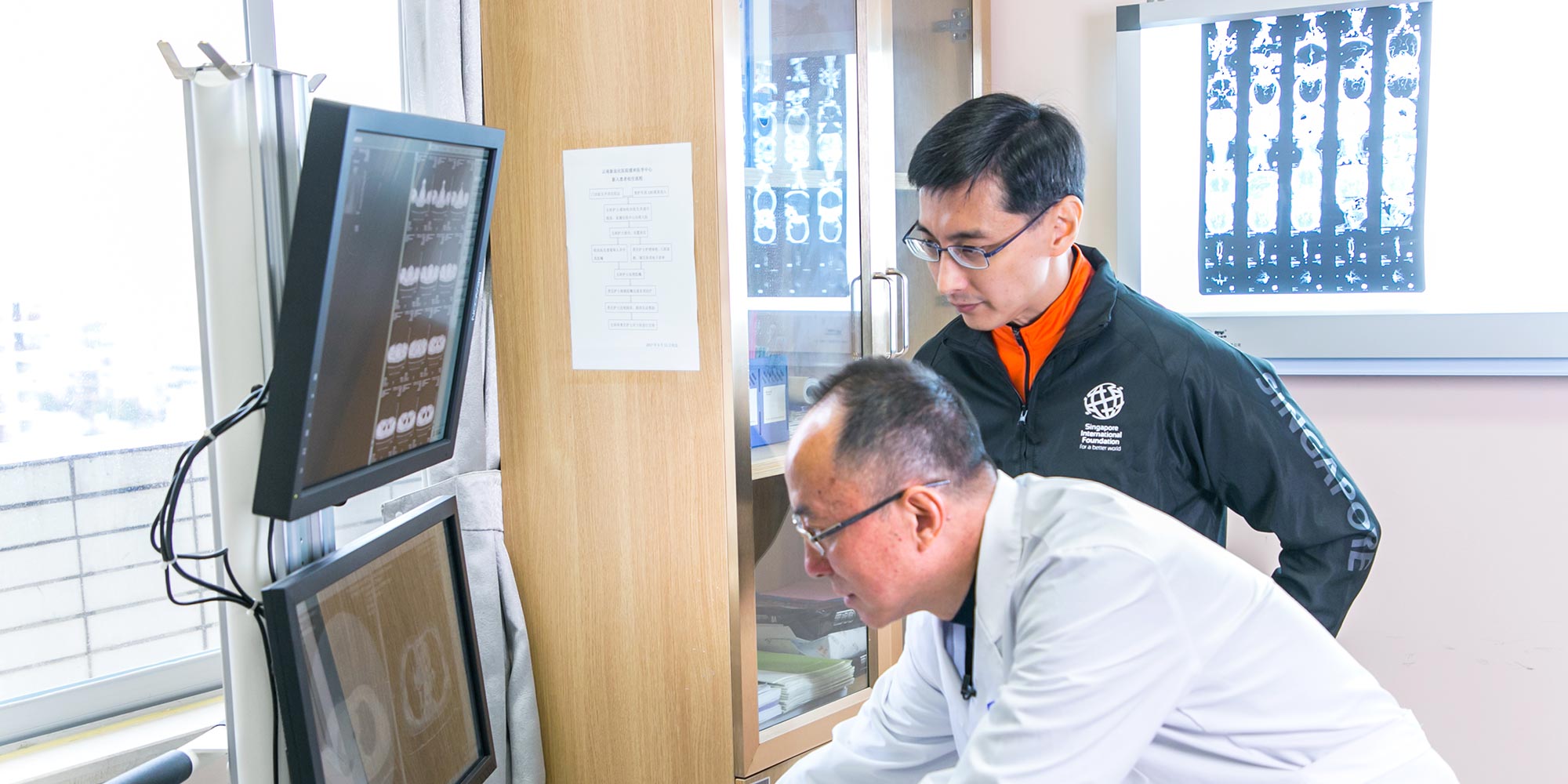Cross-Border Collaboration A Must To Beat Climate Change
Close to 300 participants from across Asia convened at the virtual Climate Conference as part of Climate Hack 2024 to discuss the causes and consequences of climate change and the opportunities to address it.
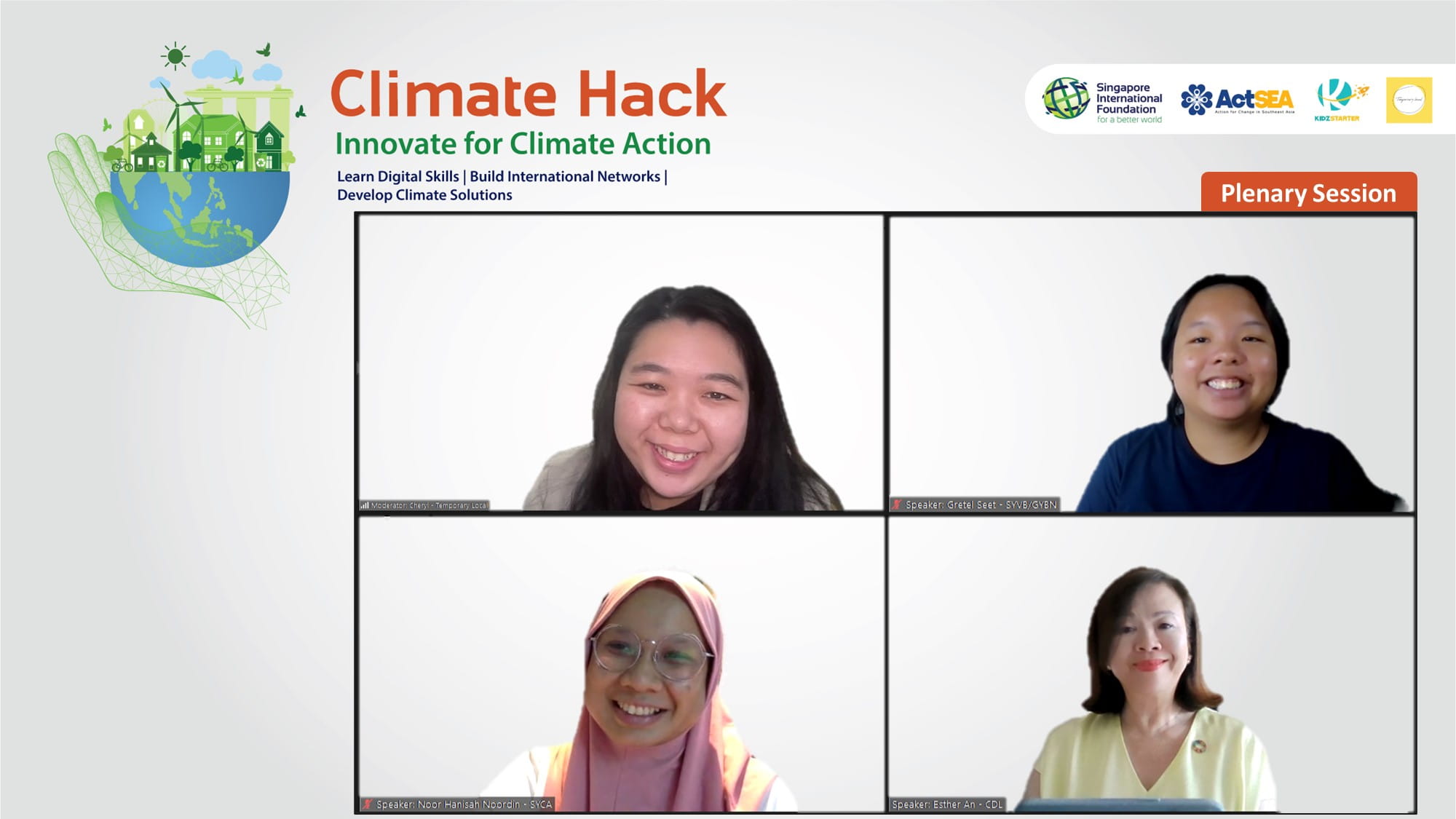
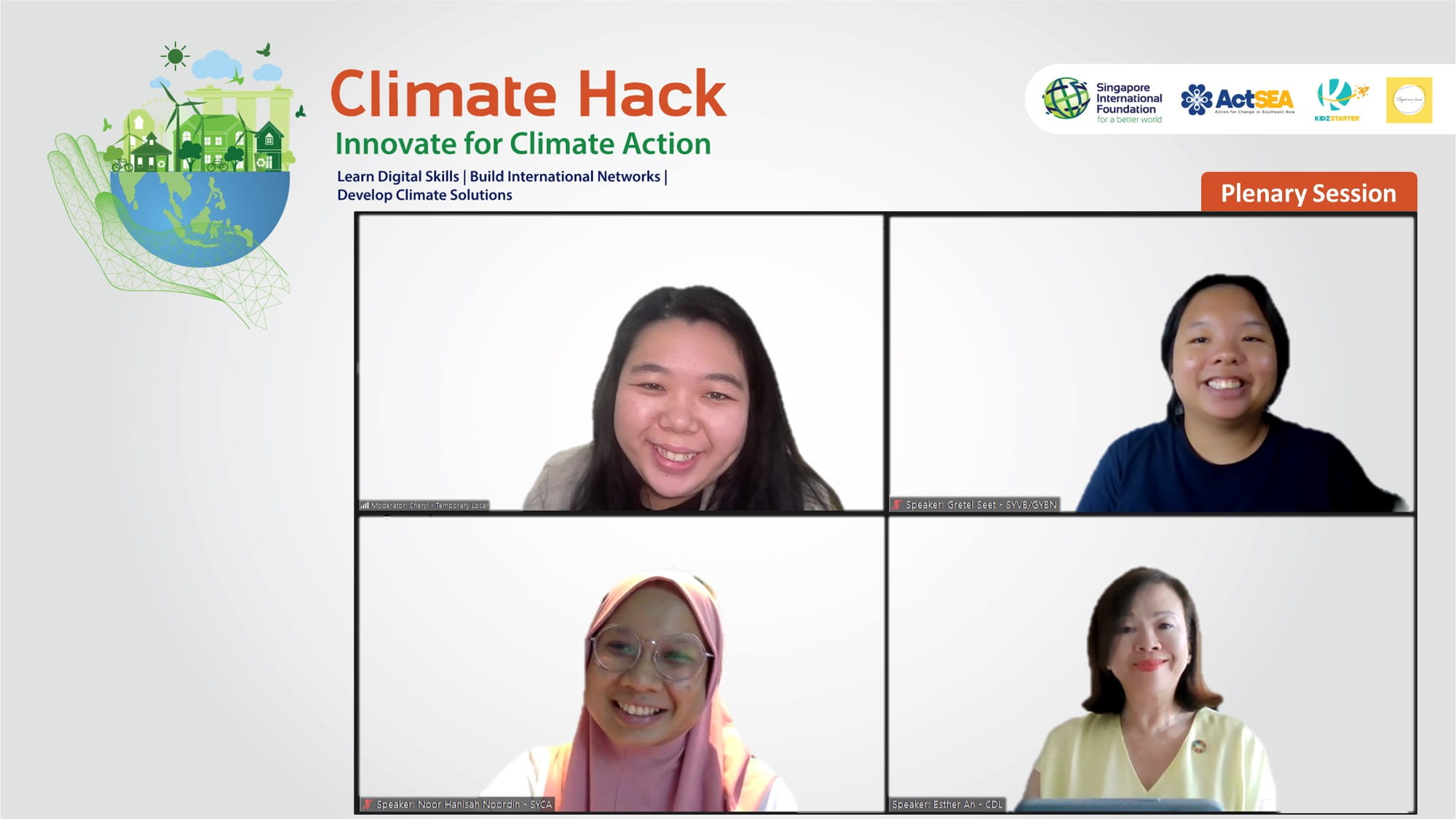
The conference’s plenary session featured (clockwise from top left) Ms Cheryl Lee, Environmentalist and Founder of Temporary Local (moderator), Ms Gretel Seet, Chapter Coordinator at Singapore Youth Voices of Biodiversity, Ms Esther An, Chief Sustainability Officer at City Developments Limited, and Ms Noor Hanisah Noordin, a core team member of Singapore Youth for Climate Action. The speakers talked about their key takeaways from their efforts to drive change for a greener future.
“In April 2024, Southeast Asia experienced severe heat, with many countries recording temperatures above 40 degrees. As we enter an era of Global Boiling, as described by the United Nations Secretary-General Mr António Guterres, we must fast-track decarbonisation and the only way to do it is through cross-sector and cross-border collaboration. No one can win the race to net zero otherwise.”
This was a grave reminder from Ms Esther An, Chief Sustainability Officer at real estate firm City Developments Limited. She was speaking at the virtual Climate Conference on 7 September.
The conference, which kickstarted the third edition of the Singapore International Foundation’s (SIF) Climate Hack programme, was attended by Climate Hack 2024 participants and members of the public. Launched in 2021, Climate Hack aims to equip youths with digital skills to develop and accelerate tech-driven climate solutions.
Ms An, who has over two decades of experience in the field of sustainability under her belt, added: “Aside from collaborations, youths like you are key to driving innovation for climate action. In my area of work, I am constantly exploring ways to engage youths to form a bigger, stronger force against climate change. Climate Hack is a wonderful initiative that helps to identify and develop such talent.”
Ms Noor Hanisah Noordin, a core team member of Singapore Youth for Climate Action echoed her ambition. She encouraged youths to think big and engage diverse communities to address climate change together.
Responding to questions from the audience on how to advocate for climate action and make it accessible to people, she said: “People from different cultures and socioeconomic backgrounds are affected by climate change differently. Each lived experience, whether from a student, housewife or office worker, is equally valid. It is crucial to understand such nuances and tailor our approach to each of these communities to engage them effectively as we develop our climate solutions.”
During breakout sessions at the conference, 12 participants from different countries spoke about environmental challenges affecting their communities and the measures put in place to mitigate them.
In one of the breakout rooms, Mr Bibek Ghimire from Nepal spoke about how climate-resilient crops and remote sensing technology are driving sustainable agriculture in his community; Ms Lyhorng Lim from Cambodia talked about how cooking oil waste is managed in her country to minimise soil and water pollution.
She said: “I am grateful for the opportunity to share Cambodia’s climate solutions and learn how people in different parts of the world are addressing climate change. These sharing sessions gave me some ideas for solutions that I can develop through the Climate Hack programme.”
She added: “Connecting with so many likeminded youths who are passionate about our climate gives me hope that we can all play a part and create meaningful, positive change together.”
In another breakout room, Ms Khanh Tong Le Van from Vietnam spoke about the increasing incidence of health conditions such as respiratory and skin diseases due to the rising heat.
Mr Josiah Enrico from Indonesia, meanwhile, spoke about the lack of electricity access in rural areas. He said: “I was surprised to find that the health issues faced in Ho Chi Minh City are similar to what Indonesia is facing. This shows that even though each country has unique challenges, there are many common issues which present opportunities for us to collaborate on solutions.”
Over the next five months, participants will form teams based on the climate issues that they would like to address. They will also gain digital, problem-solving, and business thinking skills through a series of workshops. These will empower them to create innovative tech-driven solutions that address climate issues. The teams will be mentored by industry experts from Singapore to further refine their solutions.
Shortlisted teams will convene for Pitch Day on 22 February 2025 to present their climate solutions to a panel of judges. Winning teams will visit Singapore to learn more about the country’s climate initiatives and solutions and sustainable development efforts.
Climate Hack 2024 is organised by the SIF, in partnership with non-profit organisation Action for Change in Southeast Asia (ActSEA), entrepreneurship learning community Kidzstarter, and social innovation hub Temporary Local.
